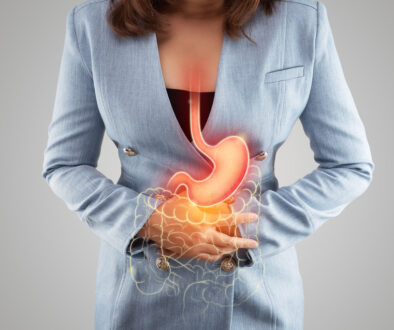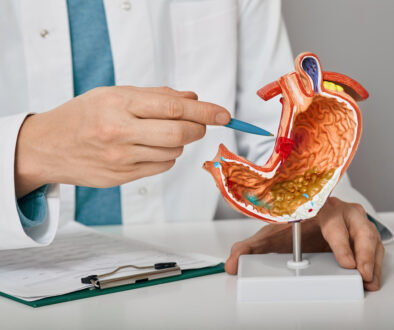What Are the Symptoms of Biliary Disease? A Closer Look
The biliary system is a vital part of your digestive system. It helps your body digest fats and absorb fat-soluble vitamins. When there’s a problem with your biliary system, it can not only hinder digestion, but it can lead to organ inflammation and infections. What are the symptoms of biliary disease? You can get the timely treatment you need when you understand and recognize issues with your biliary system.
AT RMG Gastroenterology, our board-certified physicians lead several advanced Centers of Excellence, helping those with gastrointestinal and liver disorders. With several convenient locations in the Raleigh area and beyond, we make treating you our top priority. Worried about GI symptoms? Don’t delay, schedule an appointment with us.
We’ll take a closer look at the biliary system, what it does, and the signs and symptoms you should watch for.
What Are the Symptoms of Biliary Disease?
The symptoms of biliary disease vary from person to person. These signs vary depending on the underlying cause.
What are the symptoms of biliary disease? We’ve outlined the most common below:
Abdominal Pain
One sign is abdominal pain on the upper right side that can get worse after eating fatty meals. It’s not unusual for the pain to extend to the back or shoulders.
Jaundice
Red blood cells produce bilirubin when they break down. If the bile flow is obstructed, the levels of bilirubin increase. The result is the classic jaundiced yellowing of your skin and eyes.
Nausea and Vomiting
Nausea and vomiting frequently occur when there are issues with your digestive system. They can also accompany abdominal pain.
Dark Urine and Pale Stool
Excess bilirubin in your bloodstream causes issues with your kidneys and intestines.
What Is An Example of Biliary Tract Disease?
Gallstones are perhaps the most common example. When bile hardens, it creates a solid, stone-like material. It’s caused by having too much bilirubin, bile salts, or even elevated cholesterol.
Sometimes, gallstones can block bile ducts. This is a potentially serious condition that can cause a life-threatening infection.
What Is the Most Common Biliary Disease?
Gallstones are the most common biliary disease.
Understanding the Biliary System
Bile is a fluid that is stored in the gallbladder after it’s created and released by the liver.
The biliary system comprises the gallbladder, bile ducts, and associated structures involved in the production and transportation of bile. Bile, a fluid produced by the liver, plays a crucial role in the digestion of fats and the absorption of fat-soluble vitamins, as we mentioned before.
This system stores bile that is produced by the liver. It’s then released into the small intestine to help digestion. Bile is also important because it aids in eliminating waste from the body. It’s also a key element of cholesterol regulation.

How Is Biliary Disease Treated?
If you have the symptoms of biliary disease, it is vital to schedule an appointment with one of our gastroenterologists who can provide treatment before the disease progresses to a more serious level.
Treatment depends upon the specific cause of the disease. Often it can include a combination of medication and lifestyle changes. In certain instances, surgery may be needed.
What Causes Biliary Tract Disease?
No one factor causes biliary disease. Many things including gallstones, infections, tumors, and congenital abnormalities can cause them.
What Are the Symptoms of Biliary Disease? If You’re Showing Any Signs, Contact Us for An Appointment Today
At RMG Gastroenterology, we offer comprehensive outpatient and acute care, focusing on digestive and liver diseases. Our team of board-certified gastroenterologists and professional staff utilize the latest procedures and treatments to enhance patient quality of life. With convenient locations and state-of-the-art facilities, we ensure high-quality, cost-effective care.
Want to learn more about our services? Contact us to schedule an appointment.




